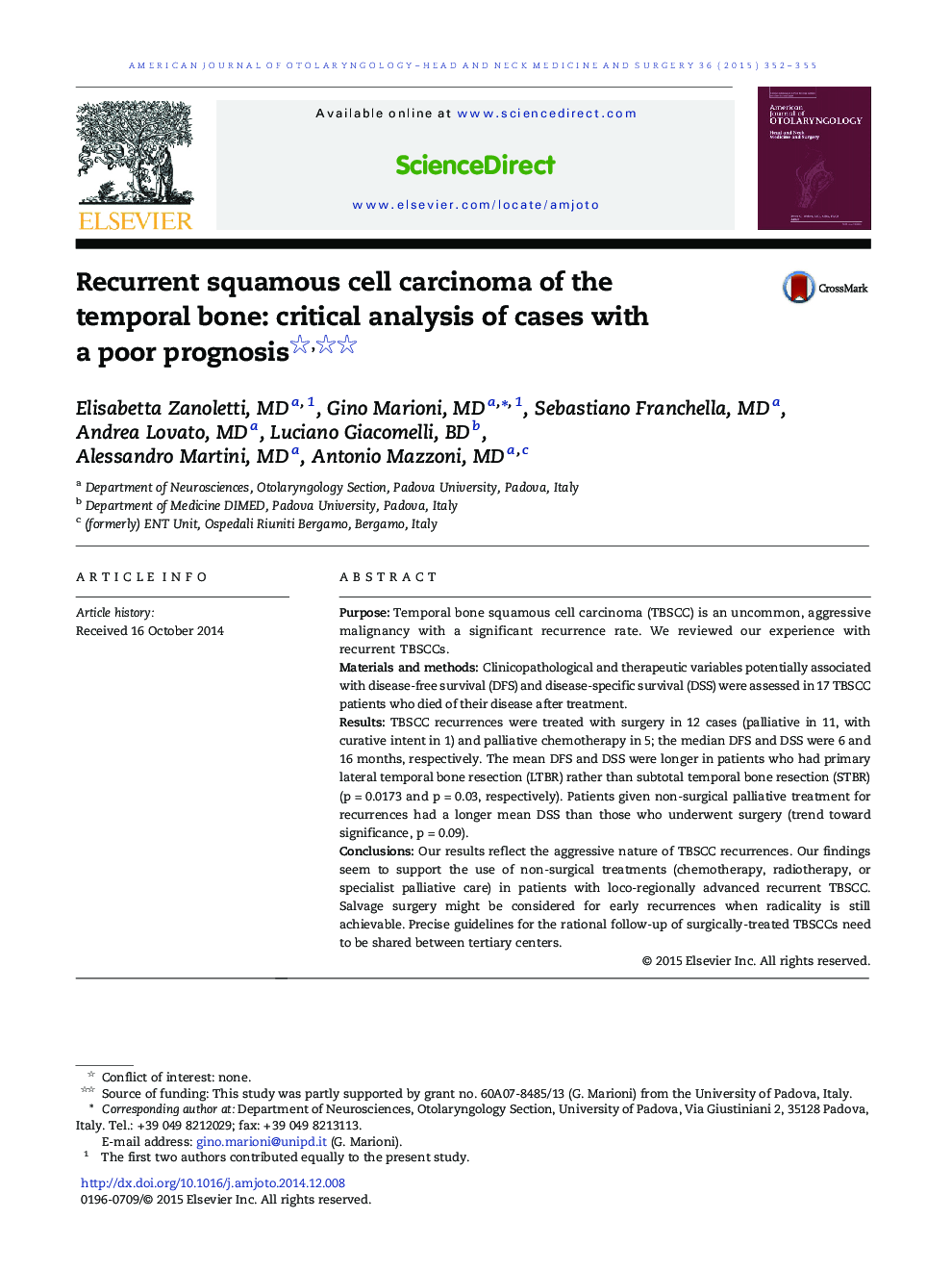| Article ID | Journal | Published Year | Pages | File Type |
|---|---|---|---|---|
| 4103534 | American Journal of Otolaryngology | 2015 | 4 Pages |
PurposeTemporal bone squamous cell carcinoma (TBSCC) is an uncommon, aggressive malignancy with a significant recurrence rate. We reviewed our experience with recurrent TBSCCs.Materials and methodsClinicopathological and therapeutic variables potentially associated with disease-free survival (DFS) and disease-specific survival (DSS) were assessed in 17 TBSCC patients who died of their disease after treatment.ResultsTBSCC recurrences were treated with surgery in 12 cases (palliative in 11, with curative intent in 1) and palliative chemotherapy in 5; the median DFS and DSS were 6 and 16 months, respectively. The mean DFS and DSS were longer in patients who had primary lateral temporal bone resection (LTBR) rather than subtotal temporal bone resection (STBR) (p = 0.0173 and p = 0.03, respectively). Patients given non-surgical palliative treatment for recurrences had a longer mean DSS than those who underwent surgery (trend toward significance, p = 0.09).ConclusionsOur results reflect the aggressive nature of TBSCC recurrences. Our findings seem to support the use of non-surgical treatments (chemotherapy, radiotherapy, or specialist palliative care) in patients with loco-regionally advanced recurrent TBSCC. Salvage surgery might be considered for early recurrences when radicality is still achievable. Precise guidelines for the rational follow-up of surgically-treated TBSCCs need to be shared between tertiary centers.
